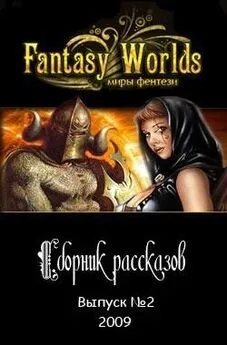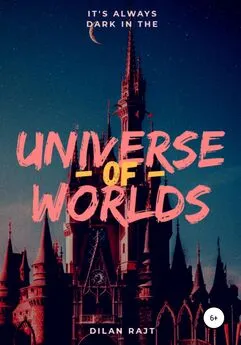Пользователь - WORLDS END
- Название:WORLDS END
- Автор:
- Жанр:
- Издательство:неизвестно
- Год:неизвестен
- ISBN:нет данных
- Рейтинг:
- Избранное:Добавить в избранное
-
Отзывы:
-
Ваша оценка:
Пользователь - WORLDS END краткое содержание
WORLDS END - читать онлайн бесплатно полную версию (весь текст целиком)
Интервал:
Закладка:
"Well, you did a good job," said Robbie. "Charge it up to education and don't fall in love with any more stage ladies."
"I've made a note of it," said the dutiful son.
"Or else - note this: that if you'd had thirty thousand dollars, you might have licked the coffee merchant!"
They were in the taxi on the way to the steamer; and Lanny grinned. "There's an English poem supposed to be sung by the devil, and the chorus runs: 'How pleasant it is to have money, heigh-ho, how pleasant it is to have money!' "
"All right," replied the father. "But you can bet that poet had money, or he wouldn't have been sitting around making up verses."
On board the steamer; and one more farewell to say. Standing on the deck, watching the lights of the metropolis recede, Robbie pointed to an especially bright light across the bay and said: "The Statue of Liberty."
She had come from France, and Lanny was going home. She waved her torch to him, as a sign that she understood how he felt.
BOOK FIVE
They Have Sown the Wind
25
The Battle Flags Are Furled
I
THERE was only one steamer a week to France at this time, and those who traveled on it were carefully selected persons, able to show that they had important business, of a kind the authorities approved. In theory, the world was still at war, and it was not intended that Americans should use the peace conference as a propaganda platform, or for sightseeing tours. But Robert P. Budd knew the people at the War and State Departments; they talked to him confidentially, and when he asked for passports they arranged it at once.
The first thing Robbie did on a steamer was to study the passenger list. He was an extrovert; he liked to talk with people, all sorts, and especially those who were familiar with his hunting ground. There was no printed list in wartime, but he borrowed the purser's list, and went over it with Lanny, and told him that this man was "in steel," that one "in copper," and a third represented a Wall Street banking group. Near the top he read: "Alston, Charles Т.," and remarked: "That must be old Charlie Alston, who was in my class at Yale. He's a professor now, and has published a couple of books on the geography of Europe."
"He'll have to begin all over again," ventured. Lanny.
"He was a 'barb,' and I didn't know him well," added the father. "I remember him as a rather frail chap with big spectacles. He was an awful grind, and most of us considered it unfair competition. However, he's made good, I suppose."
December is apt to be a rude month on the Atlantic, and there were vacant seats in the dining saloon, and one or two at the captain's table. Robbie glanced at the place card alongside him, and read "Professor Alston." He asked the captain, and learned that his former classmate was an adviser to the peace delegation, but had been unable to sail with the presidential staff because of an attack of influenza.
The third day out, the sea was quieter, and the professor appeared on deck; the same frail little man, wearing his large spectacles. The only thing Robbie didn't recall was that his complexion was yellow with a slight tinge of green; perhaps that would change when he was able to keep food on his stomach. The professor was glad to see his classmate; it appeared that when you had known somebody in college, you felt a peculiar sentimental bond. Alston had looked up to the handsome, rich, and popular Budd as to a shining light on a mountain top; so now to have him sitting in a deckchair asking questions about the coming peace conference and listening with deference to his replies - that was a sort of promotion.
Also the professor was interested in a fresh incarnation of the handsome, rich, and popular Budd; a youth of nineteen, resembling in many ways the one whom Alston remembered. Lanny was lighter in build and faster in mind, more accessible than his father and more eager to learn. The fact that Charles T. Alston had never "made" a fraternity in college and had earned a scant living by waiting on table in a students' boarding house - that didn't mean anything to Lanny. But that he was a storehouse of vital facts, and had been chosen to help the American peace commissioners in their efforts to make Europe a saner place to live in - that made him a great personage in Lanny's eyes. He listened to the conversations between the two elders, and at other times, "when Robbie was exchanging shop talk with the "big men" of steel and copper and banking, Lanny would be strolling the deck with the specialist in geography, keeping one hand under his arm to steady him when the ship gave a lurch.
II
It wasn't long before the professor entrusted the youth with his confidence; he was troubled by doubts whether his linguistic equipment - so he called it - was adequate to the task he had before him. "My knowledge of French is that of a student," he explained. "I have read it a great deal, but, as you know, it is a different language to listen to."
Lanny perceived what the shy little man wanted, and presently made the suggestion that they carry on their conversations in French. After that Lanny could have all the professor's time and all his stock of information. Once more he had found something that was better than going to college.
Professor Alston found that he could understand nearly everything that Lanny said; but would it be as easy to understand a Frenchman? Lanny knew that it was a common experience of his American friends to be able to understand American French but not French French. So he undertook to talk like a Frenchman - a matter of running his words together, taking many syllables for granted. The professor braced himself for the shock, and every now and then would ask him to stop and say it over again.
Toward this suddenly developing intimacy the older Budd felt something less than enthusiasm, and Lanny was interested to probe into his attitude. What was wrong with Professor Alston? Well, for one thing, he was a Democrat with a capital D, and his success was political. Alston was one of the crowd whom Woodrow Wilson had brought in, as part of his program to make over the world. Before the war had come along to divert his mind, the Presbyterian President had put forward a program of national reform which, if you would believe Robbie Budd, amounted to taking control of business out of the hands of businessmen and turning it over to politicians. And of course the least hint of this caused sparks to dance before Robbie's eyes.
Now the President was carrying his attitude into international affairs; he was going to settle Europe's problems for it, and to that end had picked out a bunch of theorists like himself, men whose knowledge of the world had been derived from books. The diplomats, the statesmen, the businessmen of Europe were going to be preached at and lectured and put in their places. In America this had been called "the New Freedom," and in Europe it was "the Fourteen Points," but by any other name it smelled as sour to the salesman of Budd Gunmakers.
"But, Robbie," argued his son, "a lot of the Fourteen Points are what you yourself say ought to be done."
"Yes, but Europe isn't going to do them, and it's not our business to make them."
"But what harm can it do to give them advice? Professor Alston says" - and Lanny would repeat some of his new friend's statistics regarding the economic unity of Europe, which was being crippled in so many ways by its political subdivisions. Robbie didn't deny the facts, but he didn't want to take them from a "scholar in politics." The scholar's place was the classroom, or his own cloistered study, where he would be free to write books - which Robbie wouldn't read!
III
However, the scholar was in politics - and no way to get him out until the next election. The former president of Princeton University had got the whole civilized world for his classroom, with hundreds of reporters eagerly collecting every word that he might speak, and paying fortunes to cable it to China and Peru. He had caused to be assembled a troop of his kind, a sort of general staff of peace, which, under the name of "The Inquiry," had been working more than a year to prepare for the time when the war drums throbbed no longer and the battle flags were furled.
The task of organizing this "Inquiry" had been passed on by the President to his Texas friend, Colonel House, who in turn had put the president of another college in charge. Some two hundred scholars had been selected and set to work accumulating a huge mass of data. Elaborate detail maps had been prepared, covering every square mile of Europe; statistics had been dug up, both in libraries and in the "field," as to populations, languages, industries, resources - every question which might arise during the making over of the world. Several carloads of material had been boxed and loaded onto the transport George Washington, together with many of the learned persons who had helped to prepare it, and all had been conveyed to the harbor of Brest under the escort of a battleship and half a dozen destroyers.
Professor Alston had been left behind, laid up with the dreadful "flu" which had come in the wake of war; a mysterious scourge which science was powerless to explain, and which many looked upon as a judgment of Providence upon the disorderly nations. The frail professor was hardly well enough to travel, but was worrying himself because of what might appear a shirking of all-important duties. Robbie Budd consoled him by saying: "You won't find all the problems settled when you get to Paris. You may not find them settled when you leave. Your learning may be saved for the next conference."
The professor didn't have his feelings hurt. "Yes, Budd," he answered, patiently. "That's what makes our task so hard - the dreadful weight of skepticism which rests upon so many minds."
IV
The curtain was about to rise upon the last act of the great world melodrama which Lanny Budd had been watching through four and a half impressionable years. During the eight days of the steamer voyage his new friend helped him to peep through the curtain and see the leading characters taking their positions. This melodrama differed from others in that it was not written, it was to be played impromptu, and only once; after that it would be precedent, and would determine the destinies of mankind perhaps for centuries. Each of the actors hoped to write it his way, and no living man could say what the dйnouement would be.
Professor Alston talked about history, geography, and those racial and language differences which made such a complex. As a scientist, he was dedicated to the truth; he said that he had but one thought, to understand men and nations, and help to bring about a peace that could endure because it was just and sound.
That was the "way Lanny wanted things to be; that was his dream, to find some method which would bring his friend Rick and his friend Kurt together, now that the war was over. For hours on end, helping the professor to practice his French, the youth asked questions, and showed himself so eager and understanding that on the last day of the voyage, when the steamer was in sight of the lighthouse of Pointe de St.-Mathieu, the frail scholar was moved to inquire: "Lanny, how would you like to have a job?"
"What sort of job?" asked the other, surprised.
"The State Department, which is my employer, has not seen fit to allow me the services of a secretary; but the nearer I get to France, the more I realize how I shall need one. It's going to be some time before I recover my full strength, and the duties before me are certain to be heavy."
"But a secretary has to know shorthand and typing, doesn't he?"
"Your knowledge of languages and of European ways would count far more with me."
Читать дальшеИнтервал:
Закладка:




![Галина Романова - Лицензия на happy end [litres]](/books/1058996/galina-romanova-licenziya-na-happy-end-litres.webp)
